Monday, morning, it's time to wake up and get ready for work. A kettle, a spoonful of fragrant ground coffee, sugar and cream boils into a mood. A sip of an invigorating drink and morning is no longer so gloomy. Many people begin their day with a cup of coffee. And this is not without reason, because the drink helps to get rid of signs of drowsiness, perfectly invigorates and even improves mood. Is it so useful to drink coffee every day?
Content
To improve the mood, cheer up, do not “peck your nose” at a meeting or perform a large amount of work, a cup of fragrant, tightly brewed coffee will help. This drink firmly settled in the life of many people of the planet. The wonderful taste of the drink and its properties make people drink coffee not only in the morning, but also during the day. Such a need gradually leads to an increase in caffeine in the body and can even cause addiction.
Caffeine
What is caffeine? This is a psychostimulator of the central nervous system or alkaloid. As soon as he enters the human body, activates the brain, thereby increasing not only performance, but also eliminating weakness, drowsiness and poor mood.
What is more caffeine? This question is often loved to ask coffee machines. Nutritionists say that caffeine is enough both in coffee beans and in cocoa beans, there is a small percentage of this substance in green leaves of tea.
Let's find out how much caffeine is in a cup of 150 ml. If you brew natural ground grains of coffee, about one or a hill teaspoon per cup, then caffeine in coffee will be about 100 mg. It may be slightly smaller (from 80) or a little more.
In soluble coffee, this substance is smaller: from 60, and, for example, a cup of tightly brewed grain coffee "Espresso" contains a record amount of caffeine - 300 mg! It turns out that the larger the amount of ground coffee and less water, the more caffeine will be.
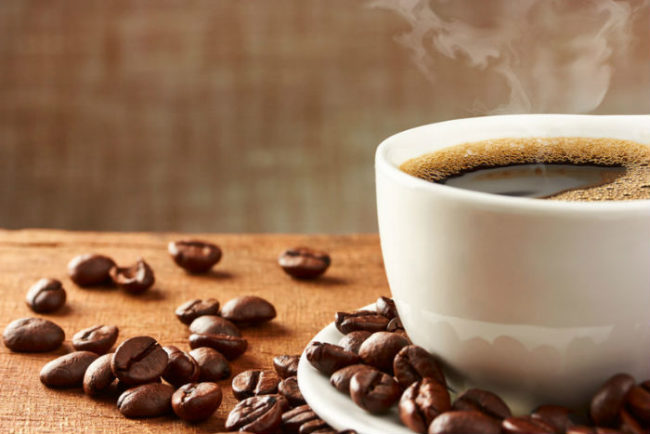
This rule applies to everyone's favorite drink: tea. For example, there will be more caffeine in green tea if you put a spoonful of tea leaves on a cup and brew boiling water, withstanding for more than 5 minutes. Then the concentration of caffeine rises and will be approximately 50 mg per cup of tea.
Caffeine in black tea is undoubtedly present, only in different quantities. Similarly, we can say about a cup of coffee. What grains were used, how much, how did they brew and how much did the water take? Also about tea, how much was brewing per cup, how properly brewed and how much. On average, caffeine in tea can be from 30 to 100 mg (per 100 ml of liquid) depending on the amount of tea leaves. If you make a very strong tea leaves, it is natural that there will be much more caffeine, even more than in a cup of coffee. In high -quality black tea, there will be more caffeine than in tea in bags.
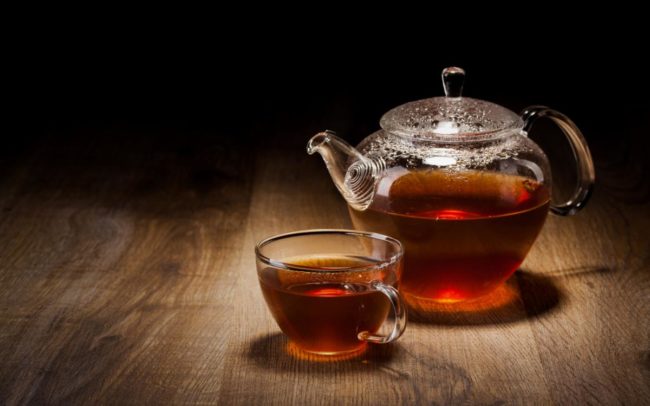
Is there any caffeine in cocoa? Yes, sure. For example, in a cocoa powder the least caffeine. A large cup of drink (200 ml) accounts for only 5 mg of a natural stimulant. If natural raw materials are used to prepare a drink (the same powder, only natural), then in a cup of hot aromatic cocoa (volume of 200 ml) in a cup of all rules, no more than 20 mg. This is much less than in a cup of custard coffee.
To minimize the content of caffeine in your favorite drinks: coffee, tea (green and black), as well as cocoa, you need to add only one ingredient - milk. You can cook your favorite drinks only in milk, and a portion of coffee, tea or cocoa is desirable to reduce.
Caffeine neutralizer - milk. When brewing cocoa, such a drink can be given even to children, caffeine in it will be very, very little. Children can be given cocoa, starting from 3 years of age, if there are no contraindications (for example, lactose intolerance).
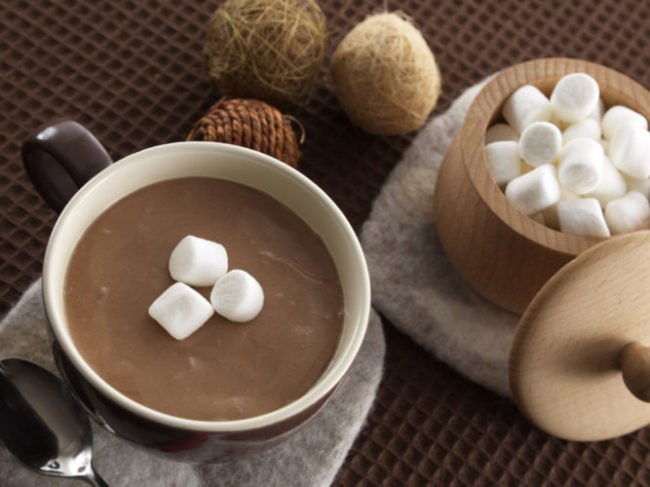
What products and drinks contain caffeine?
With our beloved drinks: coffee, tea and cocoa, we figured out. But as for Coca-Cola or Pepsi? Are there caffeine in these carbonated sweet drinks? Yes, and many adolescents consider such drinks to be energy, allowing you to quickly come into shape and cheer up. Caffein in Kolya, not as much as in a cup of properly brewed coffee. In half a glass of drinks with caffeine contains only 10 or slightly more MG invaluating substance. This dose will not significantly affect the body. But this does not mean that Pepsi, Cola and other energy can be drunk in unlimited quantities.
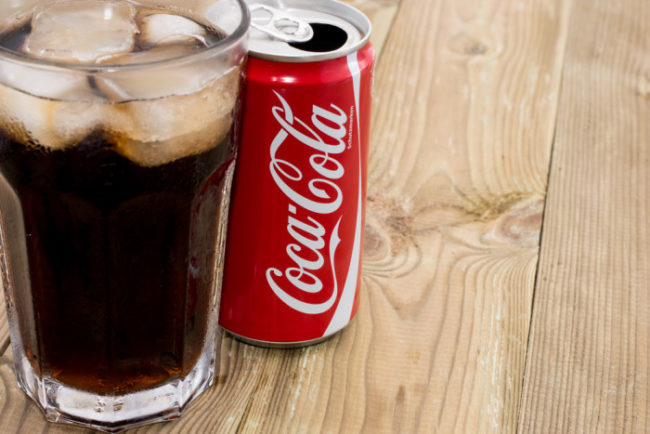
Is there any caffeine in chocolate? Yes, the alkaloid is also present in this product, only in chocolate of excellent quality and certainly bitter, black. In the whole tile can be up to 100 mg of caffeine. But in milk chocolate or with additives, the amount of this substance is minimal - approximately 20 mg.
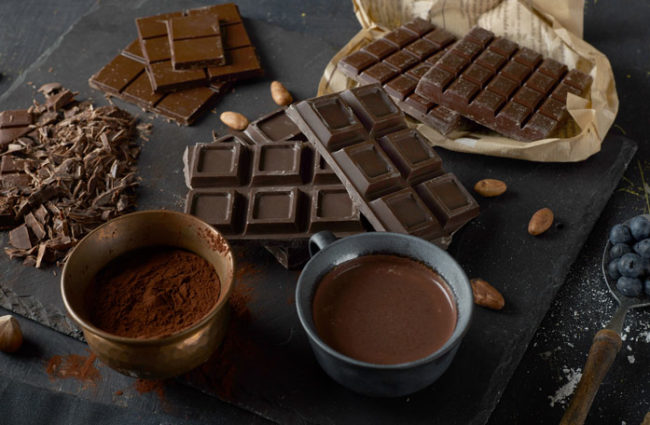
What is caffeine and how dangerous it can be
What is caffeine we found out, now let's find out in which way they get. It is known that most of this substance is found in coffee beans and cocoa beans. A little less caffeine is contained - in ground dry tea leaves and in nut Kolel. This is a natural caffeine, there is still a synthetic one that is obtained from the umpe of hair. Outwardly, this is a white granular powder, if you try it, it will be very bitter. In pure form, synthetic caffeine is not used, as it is dangerous to health.
Attention: a fatal dose of caffeine for humans - 10 g, which is equal to 70 cups of tightly brewed coffee. Fans of coffee often drink 6-7 cups of coffee per day, which is equated to the 10th part of the dose dangerous for health.
The benefits of caffeine:
- reduces fatigue;
- invigorates;
- improves brain function;
- improves mood;
- enhances physical activity;
- contributes to the relaxation of smooth muscles;
- promotes the rapids of heartbeat and breathing;
- has a slight diuretic effect;
- promises that the liver produces more sugar;
- accelerates metabolism.
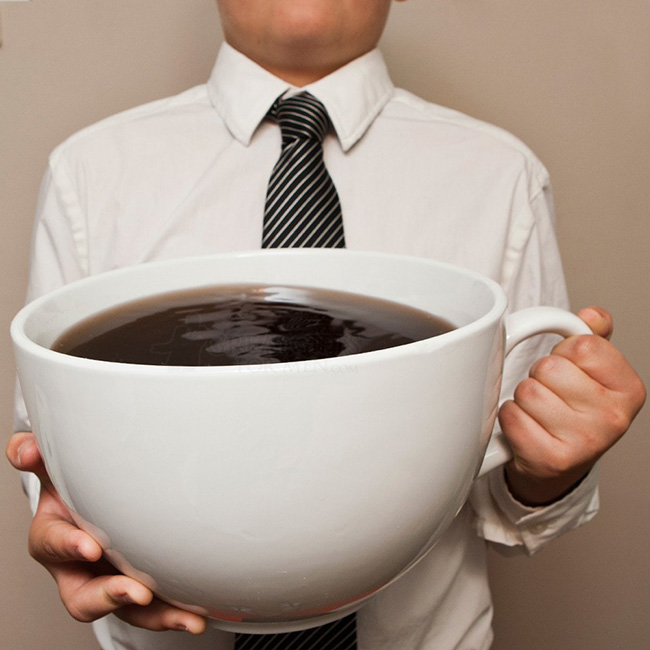
Is there any harm from caffeine? Nutritionists argue that caffeine acts on the brain almost the same as heroin or cocaine drugs. That is, if you systematically drink coffee or strong tea, then this habit will lead to addiction.
How to understand that it's time to stop? After a few cups of coffee or tea drunk, a new wave of causeless anxiety rolls, irritability, headache, and rapid heartbeat appeared.
Absolute contraindications:
- vascular and heart disease;
- excitability;
- lack of sleep or poor sleep;
- glaucoma;
- hypertension;
- increased pressure.
The effect of caffeine on the human body
Coffee helps some people to cheer up, get rid of fatigue and increase activity not only in the morning, but also during the day. One will be enough cup of coffee to bring themselves to normal, and some and some cups drunk in a row will not help. We are all different and therefore the effect of caffeine can be different.
It depends on many factors:
- human health conditions;
- its age;
- type of nervous system.
If young people have caffeine as a stimulant, then in old age, even a minimum dose of caffeine can increase pressure. We are all different and react differently. That is why doctors still have disagreements: is coffee/caffeine useful or is it still harmful?
Let's understand:
- The reaction of the cardiovascular system to caffeine: increased pressure and narrowing of blood vessels. Due to this feature, the cores and people who suffer from vascular and heart diseases prohibit doctors to drink coffee. Over the years, those who have increased pressure even from a couple of sips of coffee have increased in fear that if you drink at least half a small little drink, then you could not pass a heart attack. But, this was until recently until this assumption was rejected. Those people who drank 1 and even 2 cups of coffee did not feel anything, including a jump in pressure, with intravenous administration of synthetic caffeine. As a result of the studies, it was found that caffeine can cause a temporary leap in the pressure of those who did not drink coffee at all. Based on this, we can conclude: that if you systematically and slightly drink coffee, then in this way you can gradually strengthen the heart muscle and accustom the vessels to insignificant pressure surges. This is good news, because for most elderly people, this is a kind of protection against a stroke. Caffeine does not lower the pressure and this must be remembered.
- It is known that if you drink a cup of an invigorating drink in the morning, you can improve your mood. After all, for a long time, people realized that coffee is an antidepressant drink. Those people who drink coffee or tea for many years do not think about the suidic and do not suffer from depression. Such people are good workers, they do not delay the delivery of reports, are always active, stress -resistant. The pluses are obvious: the nervous system of hardened, perfectly opposes stress and adapts well to negative influences.
- Comfort and stomach cancer from coffee: yes or no? This disease can develop if the dosage of caffeine is even within the normal range. So scientists thought earlier, but then it turned out that there was no dependence between cancer and alkaloid. In Europe, scientists even conducted research and were looking for a direct dependence between breast cancer in women who drank coffee. This assumption turned out to be groundless, and in individual countries a decrease in the disease of the colon cancer in those people who drank 3 or more cups of coffee per day was noted.
- Caffeine during pregnancy - yes or no? During pregnancy, the body is susceptible to everything, sensitivity to caffeine increases, increased heart rate, increased pressure, frequent urge to the toilet in a small way. And this is not all, caffeine affects the fetus, enhances blood flow and penetrates through the placenta. Scientists even tried to prove the direct influence of caffeine to miscarriages, but this assumption was not confirmed. But it turned out that the dose of more than 200 mg of caffeine per day would be dangerous for a pregnant woman. The opinions of scientists were divided, as some believe that from 4 to 7 cups of coffee per day can lead to a decrease in intrauterine growth and fruit fading. Since there is no clear evidence of the negative effect of caffeine on the unborn child, doctors recommend not abuse this drink so as not to cause an overdose of caffeine. This substance accumulates in the body of a pregnant woman, releases slowly, so it can affect the health of a woman and the fetus negatively.
- Caffeine is a faithful ally in the fight against extra pounds. As soon as the desired dosage of caffeine is accepted, metabolic processes are activated and there is an active burning of subcutaneous fat. And if not just drink coffee, but also to be physically active, it is easy to get rid of 200 calories. To achieve certain results, some athletes use this and intentionally take drugs of the caffeine group.
- Coffee is also a stimulant for men, caffeine will help improve potency. And for women after 50, who love to start every new day with a cup of aromatic coffee, sexual life will be the same as in youth. And all due to the fact that caffeine activates the nervous system, forcing each cell to work more actively.
- Surprisingly, caffeine, which is not contained in large quantities in grain coffee, helps to improve the condition of the skin, get rid of the hated orange peel and even smooth wrinkles. Therefore, women who like to make masks and scrubs independently use caffeine for the eyes, hair and body. To become more attractive and it will now be easier for you: you need to add caffeine to the skin care product (or take coffee of small grinding coffee), apply to the skin around the eyes before bedtime. In the morning you will not recognize yourself: there will be no trace of dark circles, swelling, and small wrinkles will become less noticeable.

Now you understand how unlimited caffeine can be in coffee and cocoa beobs. Only you should always understand which alkaloid should be used to achieve the result. If this is a pure drug, the body gets used to it faster, but the result will not be the same as after a cup of coffee in the early morning. In some cases, there is a need to take caffeine in tablets.
Caffeine: Instructions for use
In what food products there is an alkaloid, you already know. This is a natural substance, therefore it is present in the same coffee or tea in a minimum dosage. And when you need to spur the body, establish the functioning of the nervous system, get rid of drowsiness and vice versa, increase activity, prescribe special drugs. For example, pure caffeine.
The composition of caffeine: tablet form - pure sodium benzoate (or caffeine). Packaging: in the blist 10 tablets of 0.1 or 0.2 g.; Caffeine in injections or injection solution is sold in ampoules, 1 ml contains 0.1 or 0.2 g of the active substance.
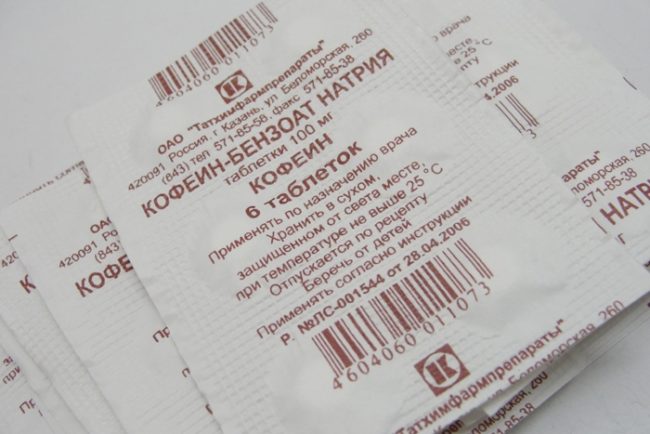
If we consider the effect of caffeine tablets, then after taking this drug, a person will not feel a sharp heartbeat, as after a drink of espresso.
Caffeine: how to accept
The correct name of the piles with caffeine "Caffeine benzoate", application according to the instructions.
Take caffeine according to the instructions, dosage for an adult from 50 mg and not more than 100 mg, children can be taken no more than 75 mg, this is a daily dose.
Features of the reception:
- you can take caffeine for children, but only after consulting a specialist, the doctor should prescribe a daily dose of the drug that needs to be divided into 2 or 3 doses;
- adults, as mentioned above, are prescribed at least 50 mg per day, the maximum dosage is 100 mg, which must also be divided into several techniques;
- it is forbidden to take the medicine in the evening before bedtime;
- at once, all 3 caffeine tablets are also prohibited to take so as not to provoke arrhythmia.
The drug Flyzoat Sodium: Instructions for use
Output form:
- tablets, containing pure caffeine and sodium benzoate. Dosage 0.1, 0.2 mg. In the package 10 tablets;
- injection form: ampoules 1, 2 ml, in cardboard packaging 10 pcs.
Action: increases the nervous system, improves brain function, enhances physical activity, relieves traces of fatigue, eliminates drowsiness. In large doses, increases pressure. Promotes vascular expansion, moderate diuretic. The action directly depends on the state of the nervous system.
Indications:
- inhibition of the function of the central nervous system;
- infectious diseases;
- poisoning with narcotic drugs;
- cerebral spasms;
- removal of drowsiness;
- in order to increase physical activity;
- oppressed mental state;
- violation of breathing;
- children's enuresis.
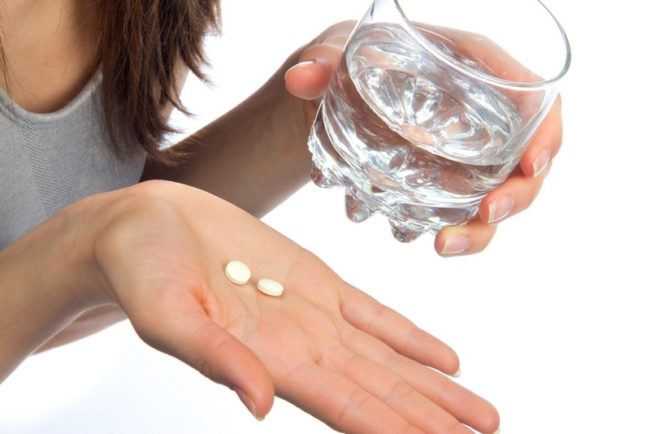
How to accept and dosage:
- The tablet form - inside, washed down with a glass of water 2 or 3 times a day, the minimum dosage from 0.025 to 0.1 g. A single dose is maximum 0.4 g, daily - 1 g.
- Subcutaneous administration of the drug: for adults 1 ml (solution 10-20%), 2 or 3 times a day as prescribed by a doctor. Children are administered 10% solution, from 0.25 to 1 g of caffeine.
Simultaneously with the use of sleeping pills, caffeine is not taken, it enhances the effect of paracetamol and acetylsalicylic acid.
With an overdose (more than 300 mg of the drug is taken per day), such symptoms may appear:
- headache;
- anxiety;
- tachycardia;
- tremor;
- clouding of consciousness;
- convulsions.
Store in a dark cool place, do not use after the date indicated on the packaging.
What are the contraindications:
- age after 60-65 years (everything individually);
- glaucoma;
- atherosclerosis;
- tachycardia;
- disorder of the nervous system, increased excitability;
- convulsive seizures, epilepsy;
- pregnancy;
- breastfeeding;
- allergic reaction or individual intolerance.
Side effects:
- the opposite effect with sharp cancellation: drowsiness, apathy, a decrease in brain and physical activity;
- anxiety, lack of sleep, anxiety;
- increased pressure;
- nausea and vomiting, severe headache.
We summarize: natural coffee is a useful drink if you drink within reasonable limits and take into account the state of your body. Children under 14 years of age cannot be drunk with coffee, taking caffeine in a dosage form - strictly as prescribed by a doctor.









Comments
a couple of years ago, there was no side of metrogils from the same problem, there were no side effects ...
I’m not a fan of peeling at all, it saves from acne of metrogil, it also smoothes it ...
Great article! ...
I take the second course of the Capsules Climafite 911. The tides went very quickly. It became calmer, irritability went away and I sleep well ...
i also noticed - it is worth nervous, everything immediately affects the face. Therefore, I try to avoid conflicts and unpleasant people. Of the creams, I like Miaflow from wrinkles - smoothes not only small wrinkles ...